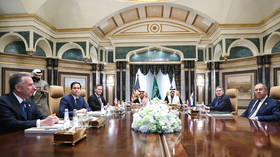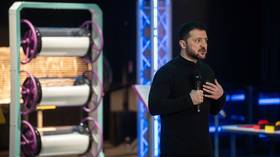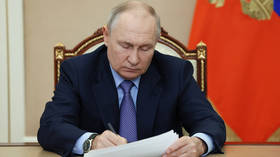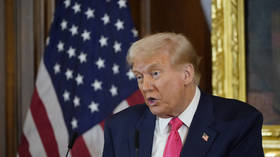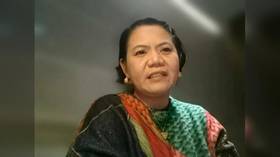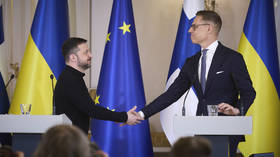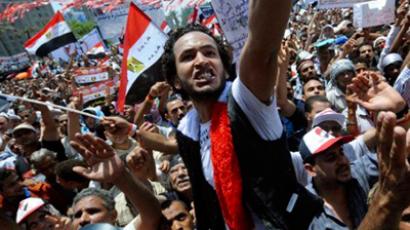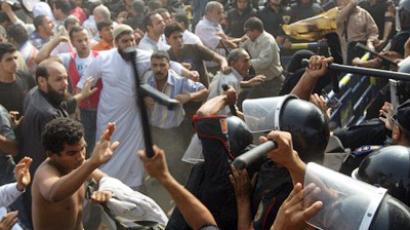‘Islamist hardline growing under Egyptian regime’
The new Egyptian rulers are in no hurry to fulfill the promises given during the revolution, delaying passage of the anti-discrimination law and much-anticipated law for equality between Christians and Muslims, inspiring clashes and mass protests.
Egypt's military rulers employed Mubarak-style tactics to disperse protests and imposed an overnight curfew on Cairo's Tahrir Square and other parts of the capital.It follows an eruption of violence between Coptic Christians and security forces that has left, according to different reports, between 26 and 36 people dead.On Monday Egypt's cabinet has held an emergency meeting. Egypt's ruling military council has called on the government to form “a fact-finding committee” to conduct swift investigation and to take “legal measures against all those proven to have been involved.”The first funerals of the 24 killed in clashes have also been scheduled on Monday.There has much confusion over what happened last night. Some say the Christians clashed with Muslims, others say it was the military against Christians.Dr. Youssef Sidhom, the Editor-in-Chief of Egypt’s only Christian newspaper, the Watani weekly, informed RT that the confrontation was between the angry Coptic protestors and military troops stationed in front of the national TV headquarters building.The demonstration was inspired by repetitive attacks of militant Islamists on the Coptic churches and their properties, the last of which took place a week ago, Sidhom informed.What began as a peaceful rally calling for justice over attacks on churches and radicalism, quickly turned into the most-violent episode since February's revolution.Military vehicles are clearly seen charging through crowds and plunging into people, while army infantry troops fired rubber bullets and tear gas.Witnesses claim the escalation was sparked by unconnected trouble-makers, but state-owned media blames Christian protesters for instigating the violence.
“This is absolutely cynical kind of the way it is covered bymilitary council and its media arm,” Middle East Blogger Karl Sharro told RT. “What is really shocking is that we have a state media in a country of a mixed Christian and Muslim population calling the protesters the Copts, saying the Copts have been doing this and have been doing that. This is a very cynical attempt by the de-facto rulers of the country, the military to portray the religious minority of the population as trouble-makers,” he said.
The Coptic protestors marched through Cairo, asking the government to bring the criminals who are attacking churches to justice.So far the prime minister “has been extremely reluctant to enforce the rule of law” and bring those responsible for the Church attacks to justice – and this is a very dangerous signal, Sidhom pointed out. Since the state fails to protect minorities and enforce the rule of law – the Copts are going to continuously pay the price.The protestors demanded from government to fulfill its own promises and release the unified law for places of worship, to “establish the long–awaited equality between Christians and Muslims in Egypt,” Sidhom said.The demonstrators wanted the government to prove commitment to putting an end to discrimination and issuing a special bill on that. They also insisted on establishing a special committee to study the list of churches closed before the revolution in order to re-open them.Dr. Sidhom confirmed that those who attack Coptic churches are considered heroes by local Muslim population.“Militant Islamists feel free to attack Christian churches and Coptic property, to loot Coptic homes, to destroy Coptic farms and shops. Every time they escape with what they do and nobody [of them] is arrested or presented to justice,” considers Sidhom.The former autocratic regime of President Mubarak was actually a barrier against all kinds of religious tensions in multi-confessional Egypt, crashing every kind of religious extremists, including those Islamic ones. Now all of them are taking their time, making up lost ground, as “all Islamist factions are set free,” Sidhom said.“What we are seeing since the revolution is a set back in the situation with Copts and their security,” Sidhom concluded.



